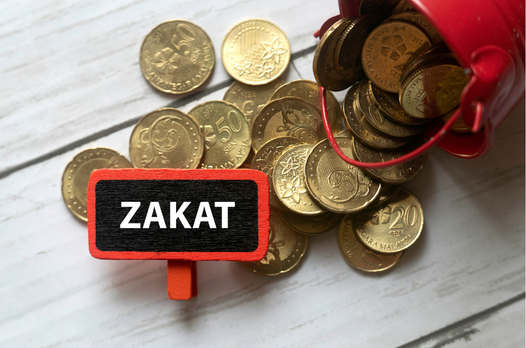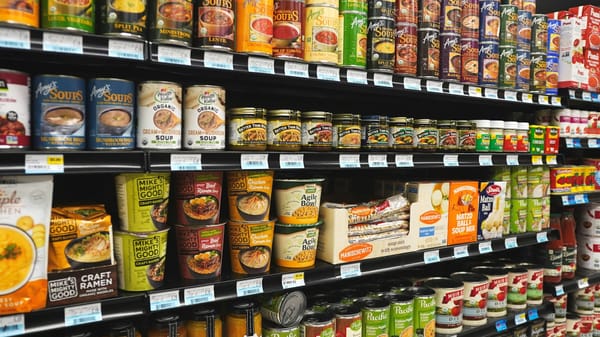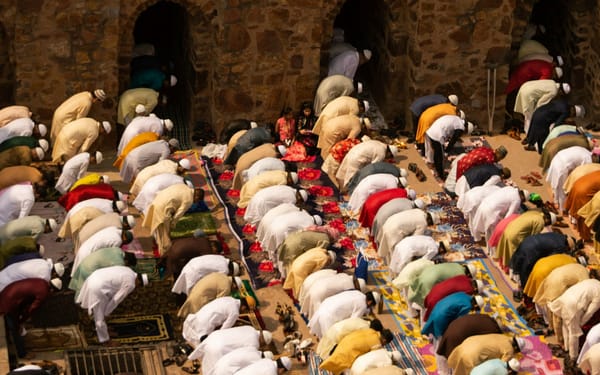How to Calculate Zakat on Gold

Zakat is an important obligation in Islam. It is meant to help the poor and promotes the overall financial well-being of society. Every adult Muslim who has accumulated the level of wealth on which Zakat is obligatory must pay Zakat.
This article will help you calculate Zakat on gold.
Calculation of Zakat
What is Nisab?
Nisab is a threshold to check if you are liable to pay Zakat or not. Those who own wealth (including gold, silver, investments, or cash) equal to or more than the nisaab threshold pay Zakat on the entire wealth.
The Nisab for gold is 85 grams. This means that if you have 85 grams of gold or more, you must pay Zakat. Zakat also applies to any other type of wealth equivalent to or more than the price of 85 grams of gold.
Percentage of Zakat
The Zakat is 2.5% of your wealth. To calculate your Zakat, start by summing up your wealth. It can be cash, the value of gold, silver, or other precious metals, stocks price, investments, and any property that generates money.
For example:
The gold price per gram is $54.089 (on July 21, 2022).
If you own exactly 85 grams of gold, your Zakat calculation will be as below:
$54.089 x 85 g = $4,597.565
$4,597.565 x 2.5% = $114.93
When to Calculate Zakat?
What time of the year you should calculate Zakat? This is a tricky question. Your wealth will fluctuate throughout the year; therefore, it can be very hard to keep a check on your total wealth at all times and calculate zakat accordingly.
Here is what some prominent scholars had to say about the calculation of Zakat:
Dr. Zakir Naik
A summary of how Dr. Zakir Naik explained the calculation of Zakat is as follows:
Keep a weekly or monthly record of when your wealth reaches the Nisab level. Note the date (based on the Hijri calendar) and start paying zakat on the same date from the next year.
Or you can pick any date during the year from the Hijri Calendar. You can pick one of the days of Ramadan as it is the month of blessings, or you can pick any other month that you like. You also pay Zakat based on what you own on that day.
For instance, if you pick, the first of Ramadan and you possess $100,000 on this day, you pay Zakat on this amount one year later. If you try keeping an eye on how your total investment amount is changing, you might miscalculate and end up paying less Zakat.
Because the total wealth that has been in your possession for one year is tricky, you might skip months and get confused about paying Zakat.
So, it is best to pick up one point and stick to it no matter if your savings are at the highest or lowest on that date. You might end up paying a higher amount in Zakat but a least you won’t be paying less.
Sheikh Assimalhakeem
Sheikh Assimalhakeem said that the Zakat must be calculated at one time of the year when it becomes due, or you could select one month of the year. So, for instance, if you calculate Zakat on the 1st of Muharram each year, you’ll pay Zakat from Muharram to Muharram, even if your wealth changes during the year.
Other Questions Related to Zakat
Why Use Gold Nisaab for Zakat calculation?
The gold nisaab for calculation of nisaab is used because it has been the most constant and stable measure of wealth over time. Prophet Muhammad (S.A.W) declared nisaab on gold, silver, and livestock. But today, the prices of these standards have changed vastly.
Therefore, Muslim scholars made gold the standard for nisaab. Gold is an inflation hedge, meaning that its price moves up according to economic conditions such as inflation. Anyone whose wealth is Zakatable should use the gold standard of nisaab to calculate Zakat.
Why do Muslims Pay Zakat?
In Islam, the mechanism of Zakat is designed to improve the circulation of money so that the money from the rich keeps moving to the poor (8 types of masarif). This is to prevent the rich from getting richer who could start hoarding precious metals or any other type of investments.
Zakat is obligatory for Muslims who own wealth beyond the nisaab threshold. This way wealthy pay a very small portion of their wealth for Allah to the masarifs of Zakat. The Zakat money can only be paid to these 8 types of people mentioned in the Quran, known as masarifs of Zakat.
The price of gold remains constant, unlike most fungible forms of wealth such as money, coins, or other precious metals.
Zakat is only obligatory on baaligh Muslims (who have reached puberty). Muslim children who have not reached puberty are not liable to pay Zakat. This also means that Zakat is not obligatory on the wealth of orphans as annual Zakat payments from their wealth can reduce it which would leave orphans destitute soon.
Furthermore, Prophet Muhammad (S.A.W) also urged Muslims to take care of the orphans and spend money to support them.
Why Not Use Silver Standard of Nisab to Calculate Zakat?
The straightforward answer is Silver cannot be used as a Nisab because the value of silver did not increase over time as compared to gold’s value.
Prophet (S.A.W) indexed the payment of Zakat to the value of both silver and gold after the revelation of verses that obligated Muslims to pay Zakat. Originally, the nisaab of Zakat was 87.48 grams of gold and 612.36 grams of silver. Because silver dirhams and gold dinars were the commonly used currencies in Mecca during the 7th century CE, their value was steady.
Later, the value of silver did not grow as steadily as compared to the value of gold. So Muslim scholars converted the value of gold dinars to solid gold and made it the true standard for the calculation of Zakat. Gold has incomparable stability compared to all other currencies, coinage, and precious metals that are in circulation today. It serves as the best standard for the calculation of Zakat.
Although, some scholars suggest that Muslims should pay zakat on the silver standard so that more people can pay and receive Zakat. There are two problems with making silver as Zakat standard.
1. Confusion
Most scholars suggest that Muslims use the gold standard for the calculation of Zakat, so most Muslims calculate Zakat according to the price of gold. Including Silver as another standard will create confusion as the price of silver nisaab is much lower than the price of gold nisaab.
2. Increase Financial Burden
Having silver as a Zakat threshold will obligate many people who are not wealthy liable to pay Zakat. It might also oblige the poor who are among the receivers of Zakat to become the ones who are liable to pay Zakat.
The price of 612.36 grams (the silver nisaab) on July 21, 2022, is around $370, which is not a lot of money. A lot of people around the world own cash or equivalents of $370 or higher during the year. This can be their savings for a rainy day. So having to pay Zakat on this money will make it difficult for them to stay financially stable. Hence, using the silver standard to calculate Zakat is not practical.
How to Calculate Zakat on Gold-plated Jewelry?
Gold plated jewelry has a very thin layer of gold which has no resale value. Therefore, most scholars believe that gold-plated jewelry is not a Zakatable asset.
However, if you own jewelry that has a gold ratio of 50% or more mixed with other metals, you’ll have to pay Zakat on the gold weight of the jewelry. To check the gold content of the jewelry you can take it to a jeweler.
Is Zakat Payable on Gold Cutlery, Decorations, and Figurines?
Zakat is payable on all types of gold and silver that you own. Owning any type of figurines and gold or silver cutlery is haram in Islam. Having figurines as a decoration in your house, or office and eating in silver or gold crockery or cutlery is forbidden in Islam. You might just own such types of gold and silver as an asset. A halal way to own these assets is to reshape them into bullions, coins or jewelry, or any other shape that is permissible. Or exchange it with other shapes or sell it.
If you owned gold figurines and cutlery for more than one year, you owe Zakat on them. Zakat will be 2.5% of the gold weight plus the additional market value.
Is There a Penalty for Not Paying Zakat on Gold?
Yes, one who does not pay the Zakat on gold, silver, or any other asset will suffer punishment in this world and the hereafter. In the 7th century, the penalty for not paying zakat was the confiscation of zakat payment and half of one’s assets.
The Zakat is the second most important fard (obligation) after prayer and to emphasize this, it has been mentioned in eighty-two places in the Quran. Several verses from the Quran warn Muslims about the consequences of not paying Zakat in this world and hereafter.





